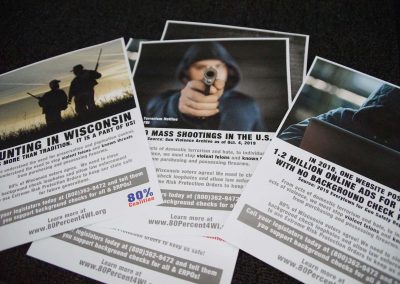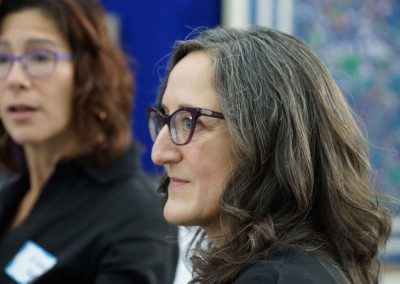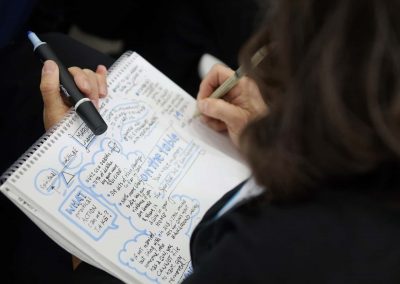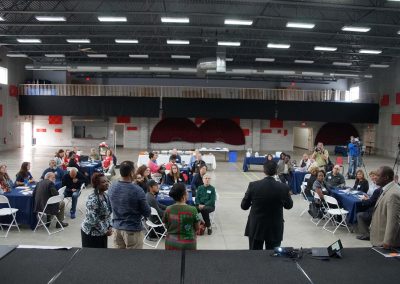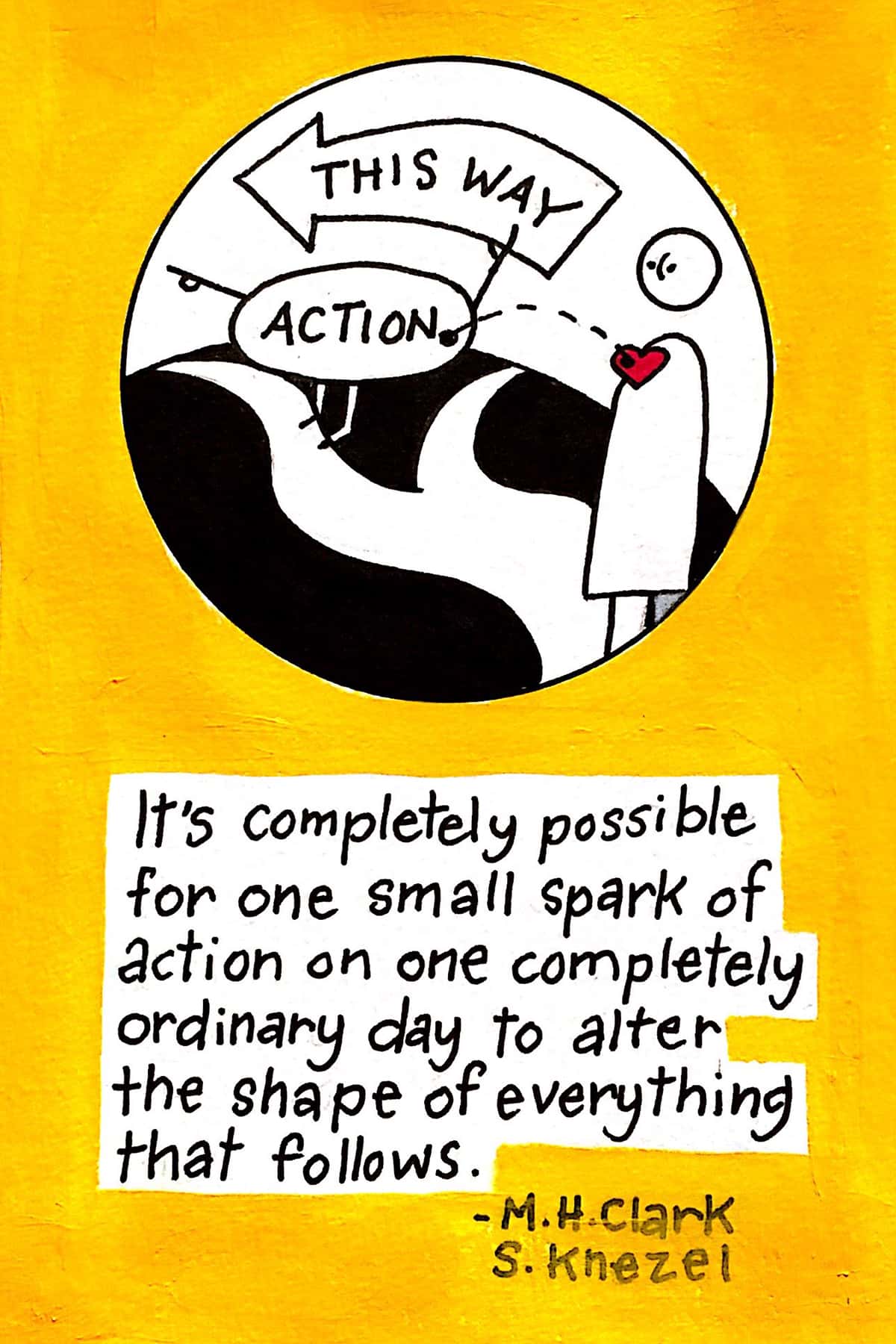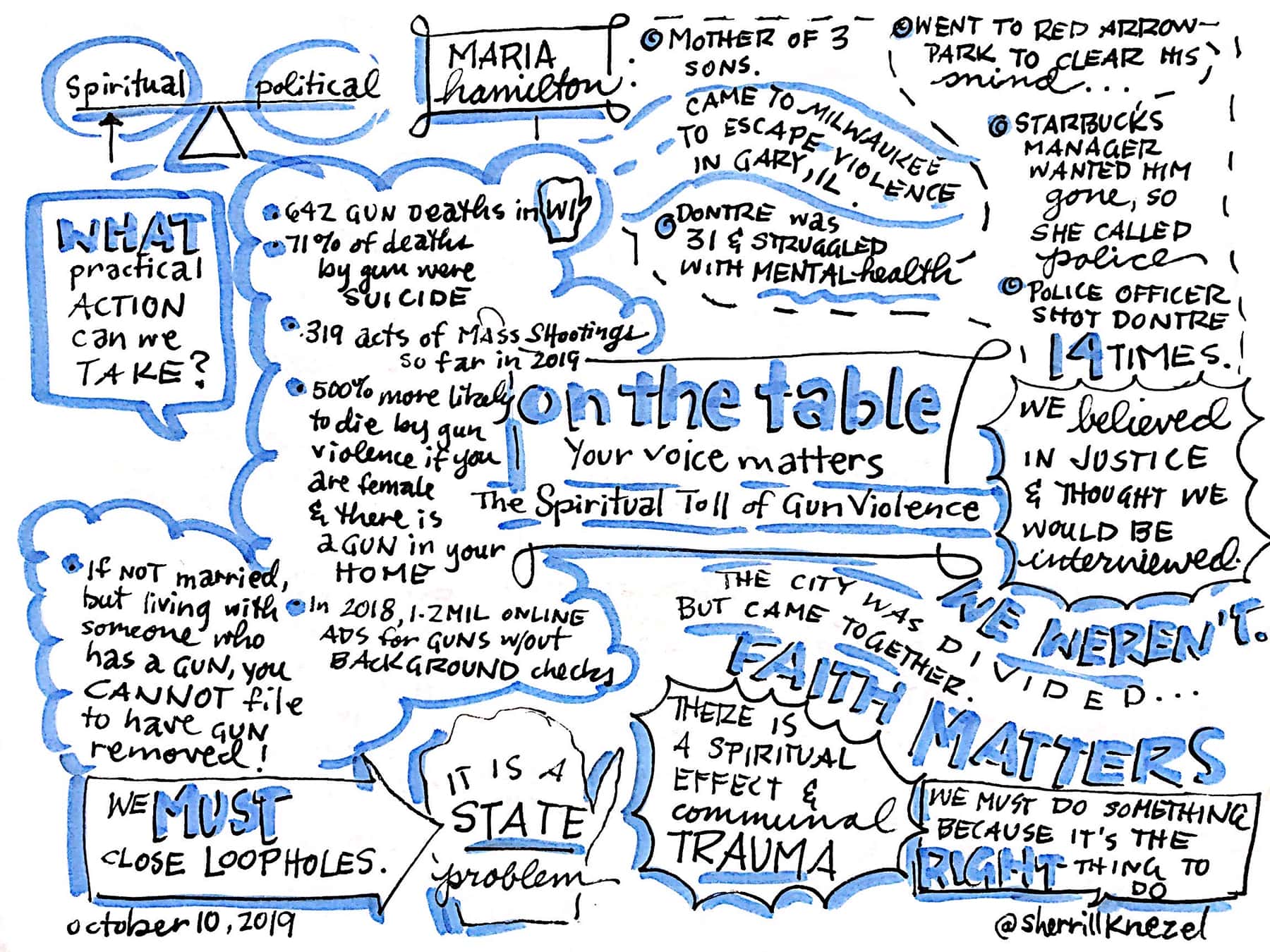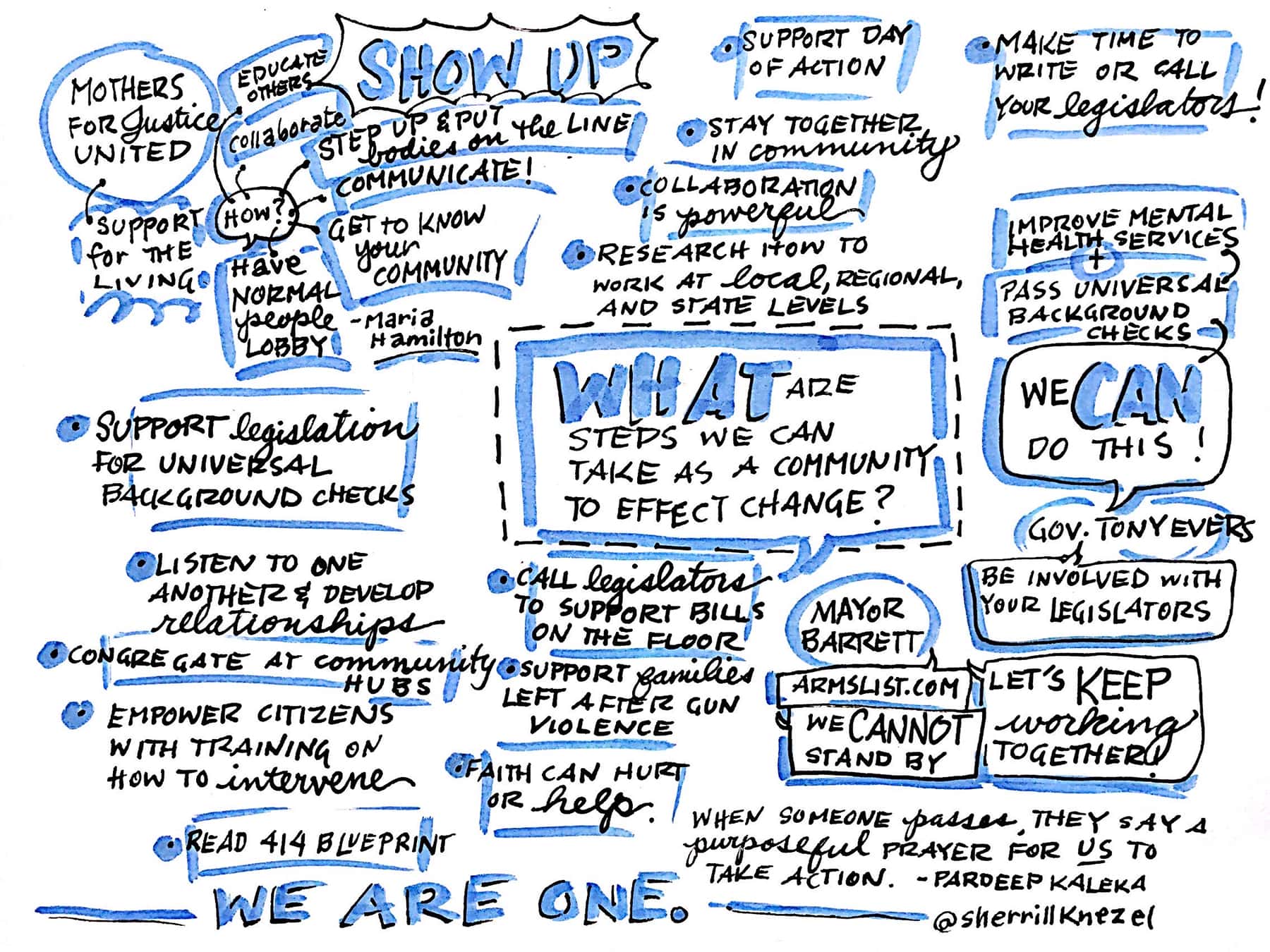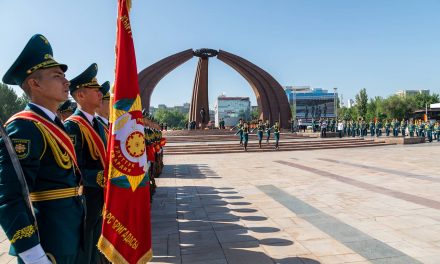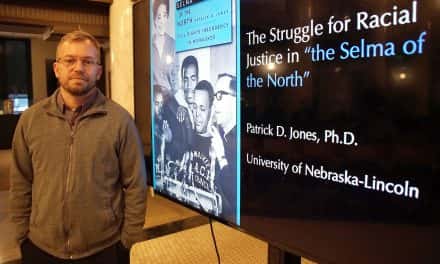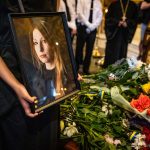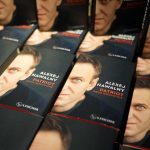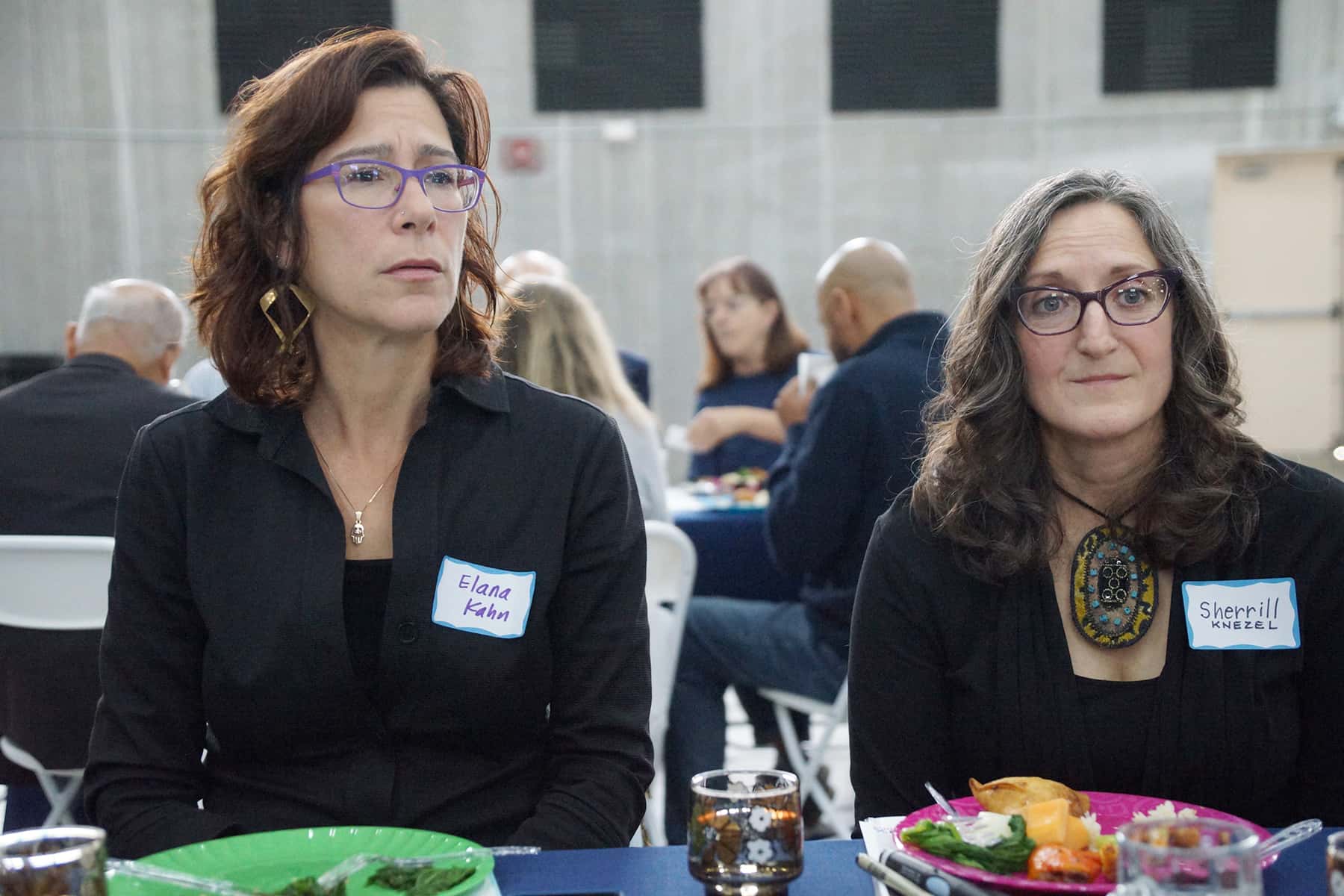
Syn·er·gy /ˈsinərjē / noun. 1. the interaction or cooperation of two or more organizations, substances, or other agents to produce a combined effect greater than the sum of their separate effects.
When seemingly unrelated small actions, ideas, or people come together, the synergy of it both surprises and amazes me. One of those times happened recently.
As an elementary educator and graphic recorder, I have been working on finding ways to support efforts in our community to bring people from diverse backgrounds together in conversation. I feel passionately about using the skills I have to foster learning and dialogue however that might look. Lately it’s looked like simply showing up and being of service in some way.
I had been planning to attend one of the many On The Table MKE events scheduled throughout the city last Thursday. A friend suggested we join a table at the Milwaukee Asian Market entitled The Spiritual Toll of Gun Violence, hosted by Pardeep Kaleka, Executive DIrector of The Interfaith Conference of Greater Milwaukee. At the last minute, my friend couldn’t attend. Self doubt began to creep in, who am I to make change? I felt a quiet inner nudge to go anyway.
I had never been to the Milwaukee Asian Market off of 76th Street on the northwest side and when I entered it was a visual delight to make my way to the large event space by wandering through colorful clothing and jewelry displays. I will definitely go back when I have more time to browse and support a local business.
Whenever I am in a situation where I don’t know anyone, I choose to sit with someone who looks different than me in the hopes of learning about another’s lived experience or perspective unlike mine. I moved to a table near the front of the room by the stage where a striking woman with red hair was sitting. As I introduced myself, I saw that her name tag read “Maria H.” and realized that she was the mother of Dontre Hamilton, the young man who was shot by a Milwaukee police officer in Red Arrow park in April of 2014. People began to fill the room, food was set up, and the program was about to begin. I’m a sketchnoter (meaning I draw out the conversation when I listen) so I pulled out a notebook and some markers as the first speakers approached the microphone.
Pardeep Kaleka welcomed everyone and Darryl Morin, President and Chairman of the Board of Latino Forward spoke about the efforts of The 80% Coalition, a non-partisan group advocating to pass common sense firearm reform legislation. He shared shocking statistics (see sketchnote) about gun violence in our state and challenged everyone to help, “We must close the loopholes. This isn’t a city problem, it is a state problem.” Reggie Moore, Office of Violence Prevention, expressed gratitude for the showing of support around such an urgent topic.
Next, Maria Hamilton was invited up to introduce herself to the attendees. She shared the story of how she, as a mother of three sons, came to Milwaukee to escape violence in Gary, Indiana, and her difficult journey to support Dontre who struggled with mental illness. She spoke of how in the weeks and months after Donte’s death, “the city was divided…but came together. FAITH MATTERS.”
As we began to eat, our table leader, Elana Kahn, director of the Jewish Community Relations Council of the Milwaukee Jewish Federation and Interfaith Conference Cabinet Chair, explained the format of the conversations we would have. Each person was to introduce themselves, say a bit about why they were here, and then pick a card to answer a question about faith. As those at our table took turns sharing and listening to personal stories, you could feel people open to empathy and connection.
As we went around the table I settled into the wonder and grace of so many diverse people coming together around a common goal to have conversations and build community.
Maria Hamilton shared more of her story and how thirty days before the day Dontre was shot, she prayed for her life to have purpose. Thirty days later, on April 30, 2014, Dontre was killed. She struggled through depression and PTSD, but through it all was determined to help other bereaved mothers find support and advocate for justice. She started Mothers United for Justice to do just that. Sitting across from her and hearing her story reminded me how much we are here to support and be in relationship with one another. What a powerful and beautiful way to effect change.
Pai Yang, owner of the Milwaukee Asian Market, shared through tears how proud she was to be hosting the event that day. She told us about the trauma of not having a country and coming to the US, about her family struggles and fear that the market wouldn’t make it, but as she wiped her tears, her eyes brightened. “This is my dream.”
A Jewish woman spoke of her personal experience through the Jewish High Holidays and how they are such a part of her life. Next a woman spoke vulnerably about her personal experience of being robbed and raped at gunpoint and how that led her to work with WAVE (Wisconsin Anti-Violence Effort) and a man shared his passion for and advocacy work with HAWA, the Hmong American Women’s Association. Elana shared her memories of growing up Jewish, her family finding a synagogue, and establishing a kosher household when she was eight. Her love of faith and community was palpable in her energy and in her voice. I continued to be humbled by the human connection happening at our table through shared stories and common ground.
As our table moved on to the question of what steps we could take as a community to effect change around gun violence, we were moved to hear more of Maria Hamilton’s suggestions: create supports for the living, educate others, get to know your community, but most importantly, her advice – we need to step up and put our bodies on the line. In other words, SHOW UP.
The table groups began sharing out their conversation takeaways; everything from taking action to supporting legislation for universal background checks to simply listening to one another and developing relationships. I continued to sketchnote the ideas shared, not wanting to miss a thing.
Governor Tony Evers addressed the crowd stressing that improving mental health services is important but that we must pair it with passing legislation on universal background checks. He urged all to be in contact with their legislators to make their voices heard. Mayor Tom Barrett emphasized that as more weapons are sold each day online without background checks, we cannot stand by. Both the Mayor and Governor’s call to action was that we must continue to work TOGETHER.
I had no idea how attending my first On The Table event would go, but as I walked back out through the Milwaukee Asian Market, I thought of the Sikh blessing that Pardeep Kaleka gave before the meal, called Mul Manthra. “Ek Onkar“ were the first words of the prayer, meaning there is but one Source (God). The spirit of the prayer was said to cherish the diversity of race, religion, ethnicity, gender, and generation in the room. That is what building community feels like. It starts with conversation, connection, and relationship, and leads to action – action taken by ordinary people coming together to make a difference.
Sherrill Knezel
Lee Matz

